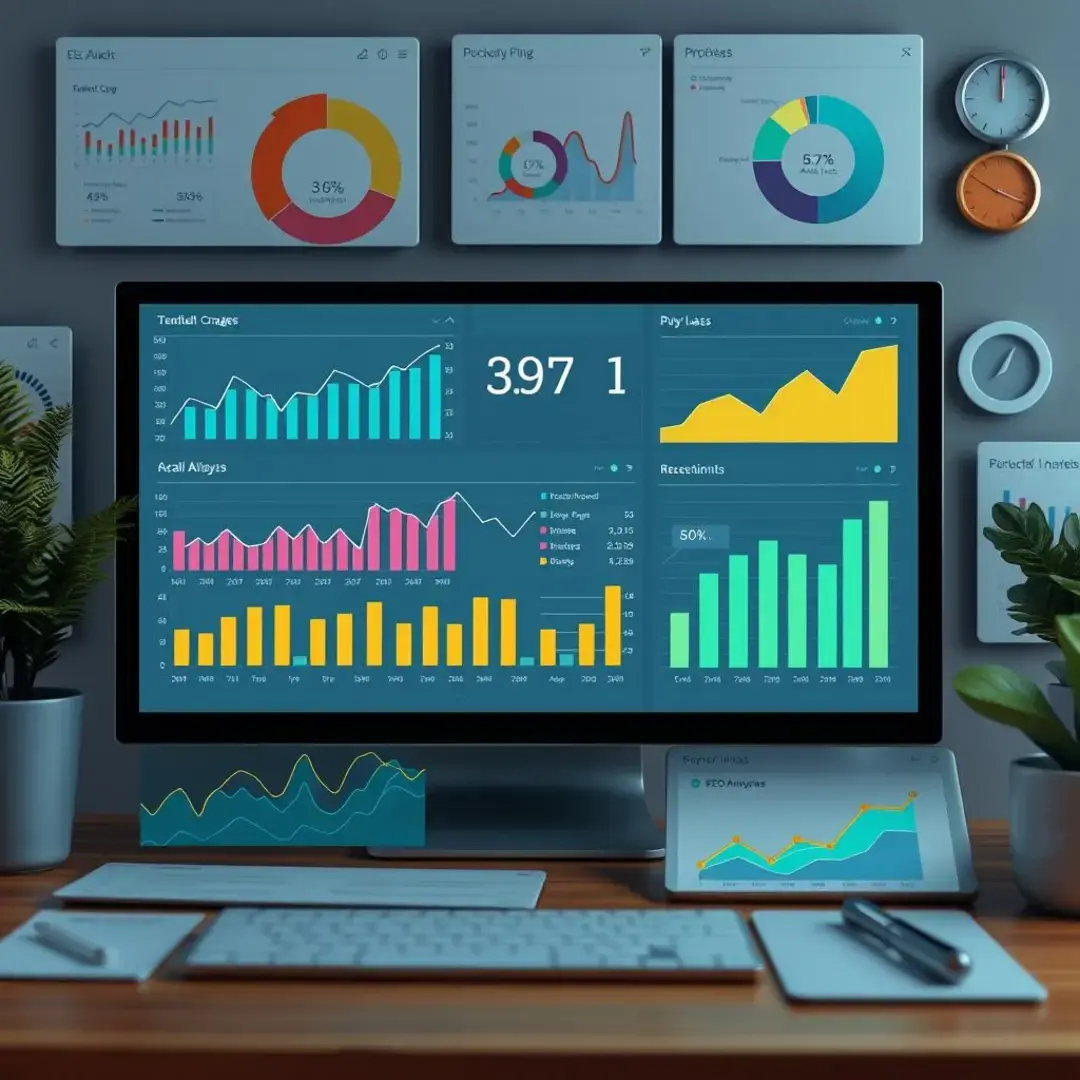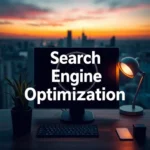What is Search Engine Optimization (SEO)?
Advanced SEO concepts: beyond the basics

Technical SEO for experts
Technical SEO is a critical aspect that often goes unnoticed by those new to the field. It involves optimizing the infrastructure of a website to make it easier for search engines to crawl and index its content. Practices include enhancing site speed, ensuring mobile-friendliness, and structuring data correctly. These elements collectively contribute to a better user experience and improved search rankings.
One of the newest benchmarks in SEO is Google’s Core Web Vitals, which measures loading performance, interactivity, and visual stability of pages. A strong focus on these metrics not only helps in achieving coveted search placements but also improves user satisfaction. By employing tools such as Google PageSpeed Insights, businesses can effectively enhance their website’s performance.
Schema markup serves as a way to help search engines understand the content of your site better. Implementing it correctly can enhance the display of your pages in search results, leading to more clicks. Advanced schema types include Article, Product, and FAQ markup, which can significantly improve how content is presented.
Sometimes websites face challenges with search engine bots not indexing pages properly, which can halt visibility. Analyzing robots.txt files or utilizing Google Search Console can expose these issues. With technical expertise, businesses can identify and resolve concerns swiftly, ensuring their content is discoverable.
Content strategy for sophisticated SEO
Developing a robust content strategy is essential for sustained SEO efforts. While producing high-quality content is pivotal, strategically aligning it with user intents and search trends can yield impressive results. A well-planned content approach not only builds authority but also nurtures engagement.
Topical authority refers to a website’s credibility regarding a specific subject area. When a website consistently provides valuable content relevant to a topic, it earns higher rankings over time. Establishing semantic relevance using related keywords and phrases ensures that users find what they are looking for rapidly and efficiently.
A content hub, often built around a pillar page, centralizes all relevant information on a given topic. This strategy encourages visitors to explore multiple facets of a subject, enhancing the overall on-site experience. Creating interconnected content also aids in spreading SEO value across pages, ensuring a unified and comprehensive approach.
Keyword research has evolved well beyond simple searches. Today’s sophisticated tools enable users to uncover long-tail keywords, user intent variations, and seasonal trends. Adapting targeting strategies to encompass these insights allows businesses to stay ahead of ranking curves and reach the right audience effectively.
Off-page SEO strategies for seasoned professionals
Off-page SEO is integral to building a website’s reputation in the wider online community. Engaging with other reputable websites and creating meaningful partnerships can elevate your website’s authority significantly. In a competitive arena, leveraging off-page strategies becomes essential for achieving long-term success.
Backlinks remain one of the strongest ranking signals in SEO. When authoritative websites link to your content, it serves as a vote of confidence, suggesting that your content is credible and useful. Focusing on quality over quantity is key — a few links from reputable sites can be more beneficial than numerous links from low-quality sources.
A brand’s online reputation plays a crucial role in its SEO success. Actively managing online mentions and engaging with both positive and negative reviews can significantly enhance brand perception. Platforms for monitoring brand sentiment provide valuable insights that can be leveraged to improve services and offerings.
Today’s digital landscape offers numerous link analysis tools that help SEO professionals assess their backlink profile. Utilizing these tools enables brands to identify potential link-building opportunities and remove harmful links that could hinder their rankings. Understanding the competitive landscape becomes easier with access to insightful analytics.
Measuring and analyzing SEO performance

To ensure the effectiveness of SEO campaigns, measuring performance is paramount. Relying solely on basic ranking reports can overlook crucial insights. A thorough analysis of user behavior and engagement metrics offers a clearer picture of what is truly resonating with your audience.
Beyond basic ranking reports
While ranking reports provide valuable data, understanding user behavior is equally important. Metrics such as bounce rates, session duration, and click-through rates offer insights into how visitors interact with your content. By analyzing these patterns, businesses can refine their strategies and improve overall performance.
Diving deeper into user behavior analysis helps businesses identify what attracts and retains visitors. A/B testing different content formats or layouts can uncover preferences that significantly affect engagement rates. Iterating based on real user data fosters a more tailored approach to content creation and service improvement.
Employing advanced analytics tools like Google Analytics or SEMrush enables professionals to gather in-depth SEO insights from various sources. These platforms can track user journeys, pinpoint high-traffic pages, and isolate high-performing content, providing a comprehensive view of performance efficacy.
Monitoring keyword performance across different search engines helps maintain a holistic view of SEO success. Each platform, while competing for users, often displays varied results based on algorithms. Understanding this landscape is crucial for long-term strategy adaptation and optimization.
Forecasting SEO performance and ROI
Forecasting performance is a vital part of strategic SEO planning. Predictive modeling based on historical data enables businesses to anticipate potential shifts in traffic and conversions. This proactive approach not only saves time but can also streamline budget allocation for marketing efforts.
By employing predictive analytics, stakeholders can make informed decisions based on data-driven forecasts. Anticipating market trends and user behavior will create more effective campaigns that align with audience expectations. This foresight positions brands to pivot quickly and sustainably as needs evolve.
Understanding the ROI of SEO initiatives is crucial for gauging their effectiveness. This involves measuring conversion rates, traffic sources, and dwell times correlated with specific campaigns. Ultimately, encoding these metrics into actionable insights leads to better resource allocation and strategic decisions.
Future trends in SEO

The SEO landscape is constantly evolving, and understanding future trends will set businesses apart. With the rise of artificial intelligence, machine learning, and changing user behaviors, adapting to these shifts is essential for remaining competitive. Forward-thinking strategies today will prepare brands for the challenges and opportunities of tomorrow.
The impact of AI and machine learning on SEO
Artificial Intelligence (AI) and machine learning are revolutionizing how search engines interpret data and deliver results. These technologies allow for more personalized search outcomes, impacting how businesses approach content creation and optimization. Staying informed about these shifts enables marketers to adjust their strategies accordingly.
Natural Language Processing (NLP) is a significant facet of AI that directly affects SEO. By understanding and interpreting user queries better, search engines can provide more accurate results. Brands should focus on conversational keywords and context-driven content to align with these changing algorithms.
As AI continues to shape search behavior, adapting to these changes becomes increasingly important. Strategies that promote flexibility and readiness for algorithm updates will serve businesses well. Embracing the future of search necessitates forward-thinking and innovative approaches to targeted content delivery.
The rise of voice search and its implications for SEO
The adoption of voice search technology is rapidly growing, influencing how users find information. With smart speakers and voice-activated assistants, optimizing for voice search is essential for staying relevant. Understanding the nuances of voice queries will help businesses tailor their SEO strategies effectively.
Voice queries often differ from traditional text searches, tending to be more conversational and longer. Businesses should consider incorporating FAQs and optimizing for featured snippets to capture voice search traffic. Adopting a user-centered stance will enhance discoverability in this new frontier of search.
Properly structuring data enhances visibility in voice search results significantly. Implementing schema markup and ensuring mobile optimization are vital steps toward effective voice search performance. As voice assistants continue to gain popularity, these tactics can position brands favorably in the search landscape.
The importance of user experience in the future of SEO
User experience (UX) has always played a crucial role in SEO, but its importance is magnifying in today’s landscape. Search engines increasingly favor websites that provide intuitive and pleasant user experiences. This shift means that businesses must prioritize UX design in their SEO strategies for successful outcomes.
A seamless user journey involves ensuring smooth navigation and clarity across pages. Users are more likely to stay engaged with content if they find what they are looking for without difficulty. Prioritizing user journeys contributes not only to better SEO rankings but also to increased conversion rates.
As mobile devices become the primary means of accessing information, adopting a mobile-first approach is essential. Building websites that are accessible to all users, including those with disabilities, creates an inclusive environment. Such practices not only promote ethical standards but also align with search engine goals of prioritizing user satisfaction.














